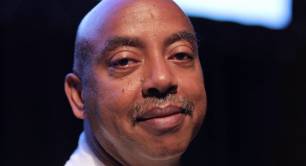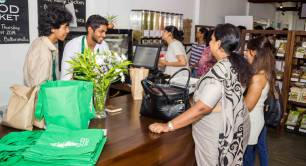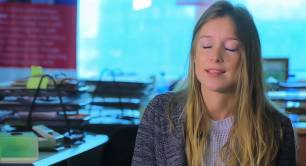Chain Reaction: “When you transform someone’s life, it’s worth it”
The transition from NGO to social enterprise can be a tough one – but staying focused on the change you bring to people’s lives will give you the energy to keep going, agreed the first participants in this year’s SEWF Chain Reaction series. Though from different sides of the globe, these social entrepreneurs from Sri Lanka and Ethiopia discovered they have much in common. Plus: scroll down for the first entries on the Chain Reaction playlist.
The SEWF Chain Reaction series is back.
From the UK to Indonesia, Sri Lanka to South Africa, we’re connecting social entrepreneurs from across the globe through a series of interviews leading up to the Social Enterprise World Forum, which will be held in Ethiopia in October.
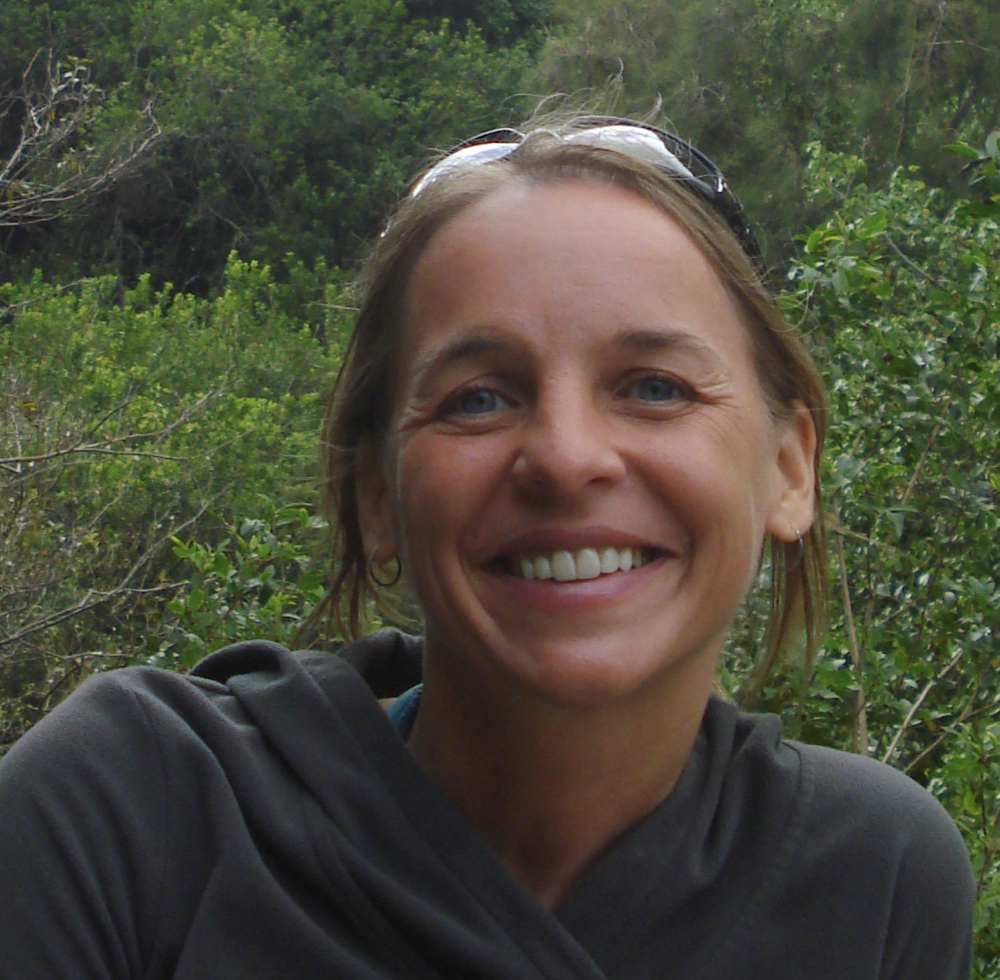 To kick off this year, we welcome back Amanda Kiessel (pictured left), co-founder of Good Market, a curated platform for mission-driven businesses. Based in Sri Lanka, she was the final link in last year’s chain, where she told us all about her journey to becoming embedded in the country’s social enterprise scene.
To kick off this year, we welcome back Amanda Kiessel (pictured left), co-founder of Good Market, a curated platform for mission-driven businesses. Based in Sri Lanka, she was the final link in last year’s chain, where she told us all about her journey to becoming embedded in the country’s social enterprise scene.
This time, Amanda interviews Mulugeta Gebru (pictured below). He’s the executive director of Jerusalem Children and Community Development Organisation (JeCCDO). Set up in 1985 to support Ethiopia’s orphans after the famine of the previous year, the organisation now spans four of the country’s states, and addresses education, health, sanitation and support for women and children. Since 2014, it has been transitioning to become a social enterprise, and now generates income through renting out guest houses and conference spaces. JeCCDO has also introduced the social enterprise model to the local organisations that it works with, encouraging local people to engage in income-generating activities to provide affordable community services.
Though based in different countries and cultures, Amanda and Mulugeta found they had a few experiences in common, including the challenges that come with transitioning from an NGO to a social enterprise, and what keeps them going when things get tough.
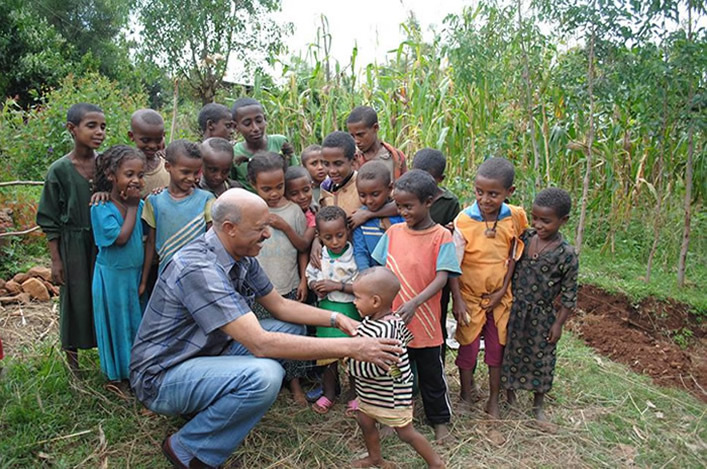
Amanda: Could you talk a little bit about your transition to social enterprise? I can relate to it. I’ve been in Sri Lanka for 17 years, and the first ten I was working for a large national NGO like yours which was also trying to become a social enterprise. I know that it can be a big challenge: with the staff, with the funding and everything.
Mulugeta: It’s not easy to transition. On the one hand we are running the development and charity work, and parallel to that we are also running the social enterprise.
The challenges are, 1, there’s no policy: in our country we don’t have the regulations, the rules – social enterprise is a new initiative, and 2, it is unknown. We have to explain why it is important for society, for a country. So a lot of work has to be done.
We started to move into social enterprise about four years ago, and it’s not easy to change the mindset of the staff. At first, people were really laughing at me, thinking this man is crazy. So I had to produce a lot of papers for the staff to read to understand the concept, and we had a lot of engagement and dialogue. And we also brought in staff training from London, as well as support from the British Council.
Now other NGOs in the country know about us now and want to learn from us, and social enterprise has cascaded into other communities.
Pioneers Post: So why did you want to become a social enterprise in the first place?
Mulugeta: Typically money becomes scarce, then we depend on others. So, instead, we wanted to generate income but also sustain the life of the community. We also wanted to reduce our dependence on donors. Ethiopia’s economy is growing, things are changing, so we have to play a role and exploit these opportunities. We want a share out of this economy which poor people can benefit from. So to become self-reliant is our main purpose in becoming a social enterprise.
Amanda: I know how challenging this kind of work can be – so what inspires you, what gives you energy on a day-to-day basis?
We wanted to generate income but also sustain the life of the community
Mulugeta: When I see someone’s life transformed, I really like it. When I see a mother who was under a very challenging situation and unable to feed her kids, then become supported and be able to leave that situation and become a really different person, it’s rewarding. It’s a very demanding job, but when you transform a person’s life, it’s worth it. That’s what motivates me.
Amanda: Absolutely, every single day that’s what gives me energy. When you can see signs of change and when you can see lives transforming, even in small ways.
You were able to get some ideas on social enterprise from links with the British Council and the UK, and now people are going to come to Ethiopia and they’re going to have the chance to learn from your experiences. So what are you excited about the Social Enterprise World Forum this year?
Mulugeta: I’m excited. It’s a great opportunity for us to link with others. We can develop partnerships and explore possible investment opportunities – it’s a huge opportunity.
We are excited to share our experiences and to get feedback from others about what strategies we can use to develop.
It’s the right time for us and the right time for Ethiopia.
The Chain Reaction playlist
We asked each Chain Reaction interviewee to choose a song to represent their country for our new Chain Reaction playlist, which will collect sounds from across the world as we continue the chain.
Mulugeta’s choice: ‘Ethiopia’ by Tilahun Gessesse
“The song is about Ethiopia. And we are a very traditional community. We like rivers, mountains, animals. The whole thing is in that song.
“The singer died years back, but people like him, and he’s living with us because of his song. He used to give away his money and live for others: he’s a very interesting person actually. So the song and the singer were coming together for me.”
Amanda’s choice: 'Tell it like it is' by Tracy Chapman
“I have been in Sri Lanka for a very long time, but my home country is the United States. It’s a country that’s built around a set of ideals that still haven’t been fully achieved. There’s a lot of really difficult history. The only way we’re going to reach those ideals and achieve the dream of what the country should be is to ‘tell it like it is’. The freedom to speak openly about what isn’t working is what enables us to move forward.
“I think a lot of the story of the country gets written by the people in power. And Tracy Chapman is a woman, an African American woman, and those voices are very important for us to hear.”
You can listen to the full Chain Reaction playlist here.


